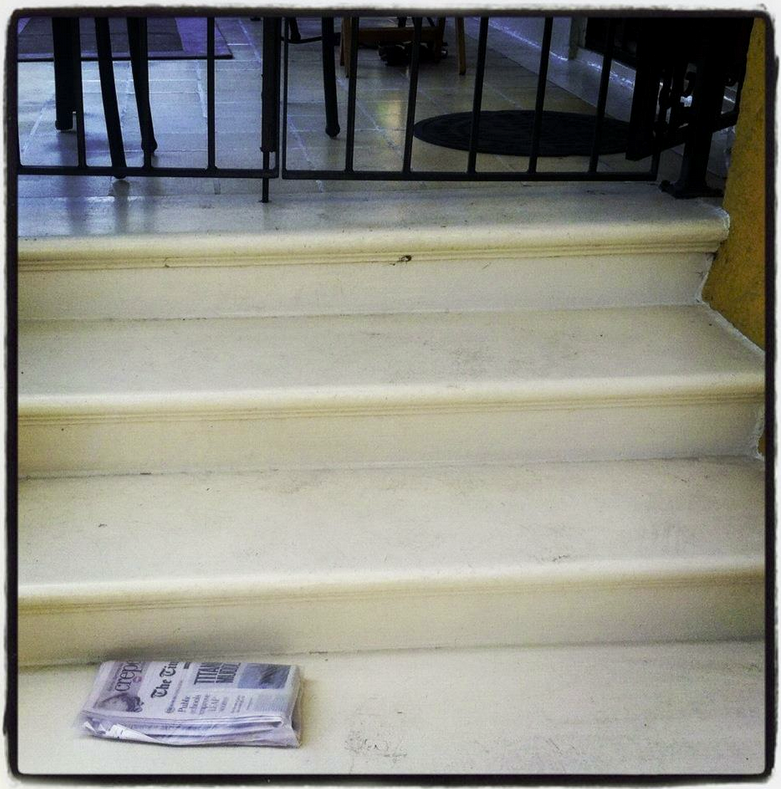The decision by The Times-Picayune to cut publication to three days a week and go all-in on the web is a response – probably belated – to some pretty grave realities.
Whether it’s a solution is another question.
What the bean counters have to hope is that they’ve struck the right balance between the web, which has large audiences but low advertising income, and the traditional paper product that has a dwindling readership much more highly esteemed, eyeball for eyeball, by Dillard’s and JC Penney and the car dealers and realtors who have long carried newspapers on their backs.
If the T-P’s New York-based owners have got the balance wrong, then the changes announced today are just an interim step before there’s another plunge down the rabbit hole that leads to ever shrinking profits, more staff cuts, a trashier product and – in the case of print on paper – no product at all.
As cities go, New Orleans has a more than normal affection for its daily. The T-P’s “penetration rate” – industry lingo for the proportion of the market that reads the paper – has long been the nation’s highest. New Orleans is not a rich city any more, but surely there are enough local investors out there with the means to assure that a first-rate news town doesn’t have to settle for a second-rate newspaper.
Memo to St. Charles Avenue: How about a Hornets-style “I’m in” campaign where the ante isn’t the cost of a season ticket. Instead it’s an investment sufficient to save a local institution at least as important as any other cultural asset or sports franchise. Warren Buffet knows a thing or two about bottom-feeding. Anyone notice his latest coup?
If there’s a certainty in all this, it’s that newspapers, including The Times-Picayune, are jealously studying the lead of The New York Times and want to start charging readers for access to their websites. Or at least try to.
So goodbye to the free lunch. A lot of analysts will tell you that the papers were fools to serve it up in the first place as the Internet gained traction and publishers hoped, with increasing desperation, that it was a passing fad.
The problem is that a lot of readers, at least in the short term, will migrate to the free websites that more profitable rival organizations – TV news in particular – can continue to finance more or less indefinitely. That would shake nola.com’s current dominance among local sites and further impair revenues, leading to further staff cuts and …
All of this is deeply saddening to an old-time newsman such as me, a 20-year veteran of The Times-Picayune. And it’s not just because I like to do a crossword puzzle while jolting myself awake with the morning infusion of caffeine.
News gathering – serious newsgathering, as distinguished from hour-by-hour blogging and tweeting – is an expensive, labor-intensive proposition. Its importance to the quality of discourse and community awareness that makes democracy possible has been much touted – and lamented, as resources diminish.
It takes a lot of warm bodies – far more than web economics can afford – to crank out the full spectrum of news and investigative work that a thriving city needs. As the staff has been slashed and slashed again during the recent downturn, The Times-Picayune has done a heroic job of disguising the damage to its news gathering army. It’s to be wondered whether the big cut ahead will be the point of no return.
There’s a qualitative difference between the products of most news organizations and their sister web products. Mass-circulation news services, such as network news in the Walter Cronkite era – performed a minor miracle on a daily basis: at the end (or the beginning) of each day they stitched a fractious and squabbling nation back into at least the illusion of common purpose and forward motion toward an achievable consensus, however far in the offing. Decent daily newspapers did the same thing. The web sites, particularly the commercial web sites, seem to be engines not of unity and common purpose but of divisiveness. The garish, in-your-face graphics, the absence of an orderly or nuanced hierarchy of news value and – perhaps especially – the bigotry and malice embodied in reader “comments” foster more rancor than enlightenment.
Some sites operated by multi-modal news organizations have managed to strike a balance. National Public Radio’s site – NPR.com – beautifully complements its broadcasts with supplementary material, rather than simply digesting and reshuffling news stories in an effort to “freshen” the site on an hourly basis. And The New York Times has put the lie to industry mavens who celebrate the crudeness of their largely un-navigable websites by insisting that they must be as different as possible from the papers they feed off.
Nytimes.com manages somehow to look and read like a newspaper. That’s not just a concession to a dying generation of old-time print addicts. There are reasons – honed over a century of experiment and adjustment – for the architecture of the traditional news page and the way in which, at a glance, it signals priority and news value.
These are the grounds for cautious optimism in any survey of the troubled news media landscape. What’s missing in New Orleans, if this is to remain a city capable of publishing a daily paper, is the resolve and commitment that comes with local ownership.
Meanwhile, one can only hope a newly reconstituted Times-Picayune regains its footing, finds the right balance of web to paper – and retains the staff sufficient to fulfill it. If it happens, it will almost compensate for the time when New Orleans had a daily newspaper and, not infrequently, a pretty damn good one.
Jed Horne was an editor of The Times-Picayune from 1988 to 2007 and is now the news editor of The Lens.



